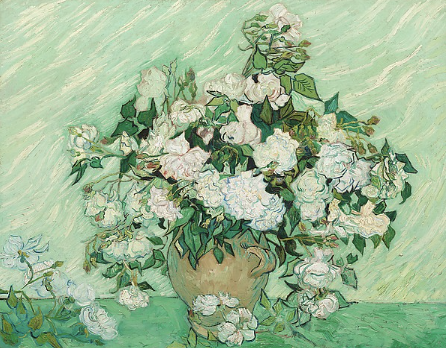
A sound, barely perceptible. Musical notes, quite high, shimmering in strings. So begins the Prelude to Richard Wagner’s opera Lohengrin, which I recently saw at the Metropolitan Opera.
Among Wagner’s many contributions to music was the development of the leitmotif, a recurring musical theme that represents an element in the story. For example, Lohengrin has leitmotifs for the Holy Grail and the Forbidden Question, among others.
You’ll hear leitmotifs in movie scores—assorted melodies crisscrossing throughout the show, giving psychological undercurrents to what you’re watching.
Writers, too, can make effective use of leitmotifs (or motifs) with words and images.
For example, in Toni Morrison’s novel Beloved, colors are used as a leitmotif, showing how characters fight against the deadly reality of slavery, even after freedom. Sethe, a mother, buys colorful ribbons and bows for her daughter. Beloved, that daughter, sleeps with a quilt that has two orange patches. And so on.
In Barry Jenkins’s movie Moonlight, there’s a leitmotif of water, representing change or perhaps rebirth. The movie opens and closes with the sound of water, and water appears at other points, most memorably when Juan teaches the boy Chiron how to swim—Chiron unaware that Juan is the drug dealer supplying his mother.
Moving on to another legendary composer: Burt Bacharach recently passed away. His music makes me smile inside, always has. It goes down easy, but is rather sophisticated, blending influences of jazz, classical, pop, and bossa nova into something unique.
A distinctive feature of a Bacharach song is the tricky rhythm. Lots of syncopation and shifting meters. In other words, it runs, then skips, then slides, then switches direction.
Here’s “I Say a Little Prayer,” sung by Dionne Warwick.
Playing with rhythm is an excellent way to wake up your words in writing.
In this passage from Chuck Palahniuk’s novel Fight Club, the narrator describes his soul-sucking office:
Everything where I work is floor-to-ceiling glass. Everything is vertical blinds.
Everything is industrial low-pile gray carpet spotted with little tombstone monuments
where the PC’s plug into the network. Everything is a maze of cubicles boxed in with
fences of upholstered plywood.
A vacuum cleaner hums somewhere.
Notice the repetition of the four sentences starting with Everything, then a sharp break with that distant vacuum cleaner.
One of my favorite celebrity sightings happened about ten years ago. I’m riding the subway in NYC. And Burt Bacharach is sitting across from me. He was in his mid-80s, looking cool as ever. As I recall, he was chatting to a young woman who seemed to be a stranger.
Hey, let’s celebrate Burt and NYC with Burt’s “Arthur’s Theme,” from the movie Arthur.

Alex Steele,
Gotham President






